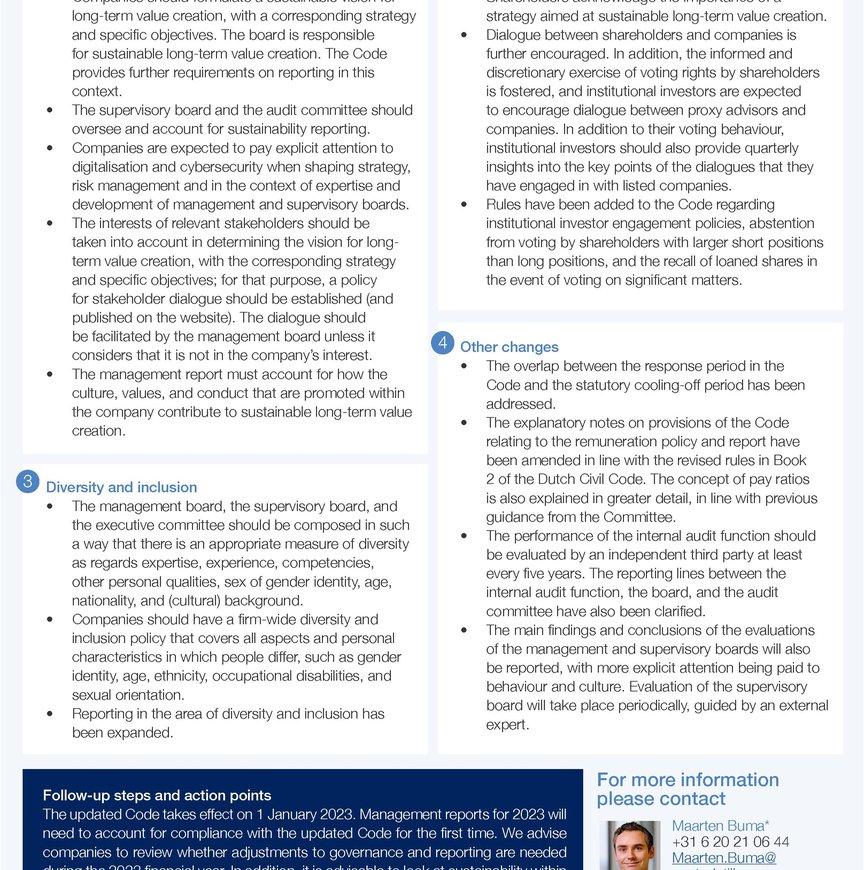The Code has been updated in areas such as long-term value creation, diversity, and the role of shareholders. See the overview below, that outlines the most important changes in the updated Code. Below the overview, we indicate what has been altered compared to the consultation version.

Alterations compared to the consultation
The Committee published for consultation a proposal for updating the Code in February 2022 (see our newsletter of 21 February 2022). The finalised version is largely unchanged compared to the consultation version, but there are a few striking changes. The consultation version provided, for example, that companies should adopt an ESG strategy and that the board should account for the effects of the company's actions within the production and value chain. This has been altered based on the consultation response. An ESG strategy is no longer required but, rather, a vision for sustainable long-term value creation and a corresponding strategy. In this context, the board must take account of the effects of the company's actions on people and the environment and the (potential) impact of sustainability issues on the company. The Code also provides that the board is responsible for sustainable long-term value creation. The explanatory memorandum to the Code explains that, as is generally true of directors' duties, this responsibility does not create an obligation of result.
The explanatory memorandum now indicates more clearly what additional information the Code requires from companies that already report on their remuneration policy and prepare a remuneration report on the basis of statutory regulation. From now on, the main findings and conclusions of executive and supervisory board evaluations should also be reported.
The concept of stakeholders has been expanded by adding that this includes groups and individuals who may be affected, directly or indirectly, by the company's objectives being achieved. The Code also pays more explicit attention to digitalisation and cybersecurity.
An addition has been made to the provision on stakeholder dialogue to the effect that not every stakeholder of the company can be considered equally relevant to every sustainability aspect of the strategy, and that it is up to the company's board to determine who the relevant stakeholders are. It is therefore not the intention to create a right of dialogue with the company for stakeholders. It is up to the board to determine whether the dialogue is in the interest of the company and its business. Another addition has also been made to the effect that the policy for effective dialogue with stakeholders should be published on the website.
In the consultation version, rules were included in the explanatory memorandum to the best practice provisions; in the updated Code these have been moved to the best practice provisions themselves.
Read the full updated Code here (Dutch) and here (English). For the Compare Code, click here (Dutch) or here (English).